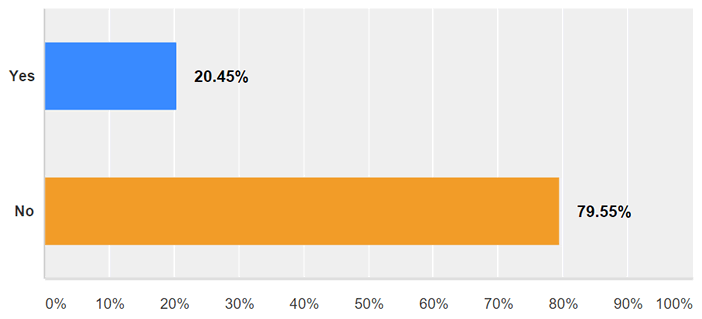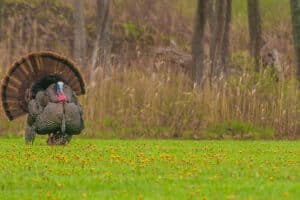According to February LANDTHINK Pulse results, 79.55% of respondents indicated that they think the government SHOULD NOT be able to seize personal property from people suspected of violating federal fish and game laws. Once again LANDTHINK received a tremendous number of responses from subscribers, fans, followers and land industry professionals all across the country. We almost tied the record number of responses we received last November. A whopping 1,110 people responded to the Pulse question last month!
Civil seizure, also called civil forfeiture, is a legal process used by law enforcement to take personal property they believe has been used in illegal activity, without necessarily charging the individual with a crime. Civil seizure has been a hot button issue for a number of years and is a common tactic used by wildlife officers on those suspected of a fish and game violation.
Game wardens, or wildlife officers, are primarily responsible for enforcing laws pertaining to the hunting, fishing, and trapping of wild animals. In most states, they have general law enforcement authority, and can make arrests and hand out citations for violations of most laws, with just as much- if not more- authority than state police. Since game wardens spend most of their time alone in the field, working in remote areas, most states have granted them extended search and seizure powers. If an officer has probable cause a violation has occurred, he or she may enter public or private property at any time and can search without a warrant. Wildlife officers commonly seize boats, vehicles, firearms, fishing gear, ATVs, and hunting supplies.
Last month, the February Pulse asked: Should the government be able to seize personal property from people suspected of violating federal fish and game laws?
There is no question; Our informal online survey revealed the LANDTHINK audience strongly believes that government agents should not have the power to seize personal property from people suspected of violating federal fish and game laws. An overwhelming 79.55% said “NO” the government should not be able to seize personal property from people suspected of violating federal fish and game laws. Only 20.45% answered “YES” fish and wildlife officers should be able to seize personal property of individuals who are suspected of violating fish or wildlife laws.
Many people accused of a crime that have had personal property seized by the government have found it difficult to get their property returned, even after being found innocent at a proper hearing. Citizens can pursue legal recourse, but suing the government is a long, tedious process that can take years and require thousands of dollars in legal fees. Even then, there is still no guarantee that seized property will ever be returned to the owner.
Laws governing fish and wildlife are extremely complex and vary by state. It’s quite easy for someone to break fish and game laws unintentionally. Outdoor enthusiasts planning to engage in outdoor recreation would be wise to educate themselves on state fish and game laws. If you’ve been accused of a violation and subsequently had personal property seized by the government, promptly seek the advice of an attorney.
Here are the final results:

- 79.55% said NO
- 20.45% said YES
Thank you to everyone who participated and shared the Pulse with friends and connections in the land industry.
LANDTHINK is seeking sponsors for the April LANDTHINK Pulse Question and months thereafter. Sponsorship of the Pulse during the busiest time of the year is a great way to ensure your brokerage is the first one buyers and sellers call when they have a real estate need. Leveraging our entire network of web and social media sites is a great way get your name out there during the buying season! Pulse sponsorships are offered on a first come first serve basis and are subject to certain limitations. If your business would be interested in sponsoring next month’s April Pulse question, please contact us soon.
Do you have a suggestion for next month’s Pulse question? Submit your question here and we might choose yours!
Do you think the federal government should own land? We’d like to know! Click here to answer the March Pulse question.
This content may not be used or reproduced in any manner whatsoever, in part or in whole, without written permission of LANDTHINK. Use of this content without permission is a violation of federal copyright law. The articles, posts, comments, opinions and information provided by LANDTHINK are for informational and research purposes only and DOES NOT substitute or coincide with the advice of an attorney, accountant, real estate broker or any other licensed real estate professional. LANDTHINK strongly advises visitors and readers to seek their own professional guidance and advice related to buying, investing in or selling real estate.










Add Comment